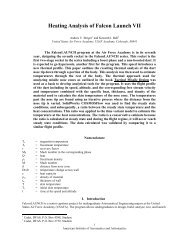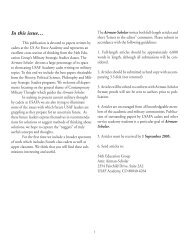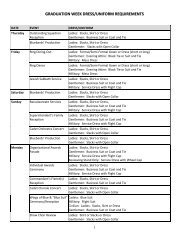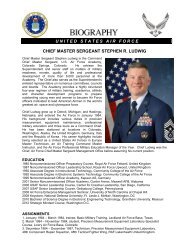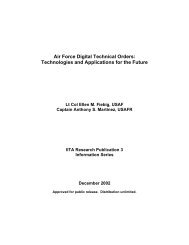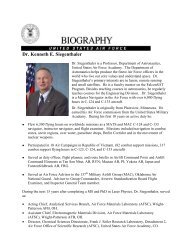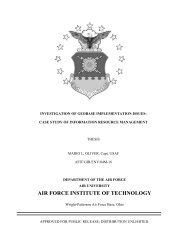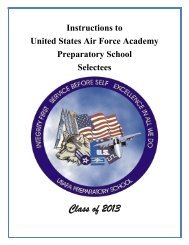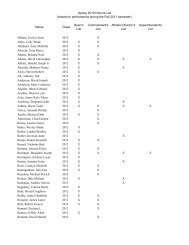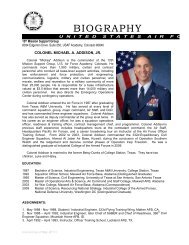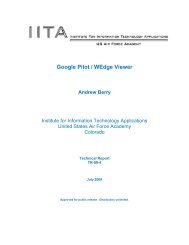the rollback of south africa's biological warfare program
the rollback of south africa's biological warfare program
the rollback of south africa's biological warfare program
Create successful ePaper yourself
Turn your PDF publications into a flip-book with our unique Google optimized e-Paper software.
Basson and his trips to Libya were <strong>the</strong> main source <strong>of</strong> contention<br />
between <strong>the</strong> U.S., Britain and South Africa. In spite <strong>of</strong> <strong>the</strong> demarche, Basson<br />
continued to visit Libya in 1994 and 1995, until he had completed five trips.<br />
The U.S. and UK kept up <strong>the</strong> pressure on South Africa to control Basson and<br />
suggested that <strong>the</strong> SANDF rehire him. Opinion on <strong>the</strong> damage done by Basson<br />
varies. According to Tom Mangold and Adams, 166 <strong>the</strong>re is no doubt that<br />
Basson was originally invited to Libya to help <strong>the</strong>m with chemical <strong>warfare</strong><br />
facilities at Rabta. General (ret.) Meiring believed that Basson did not pass<br />
secret information on <strong>the</strong> CBW <strong>program</strong> to <strong>the</strong> Libyans or to o<strong>the</strong>r foreign<br />
governments. However, he gave <strong>the</strong>m o<strong>the</strong>r information and defensive CBW<br />
techniques. There was still secrecy about how <strong>the</strong> knowledge was passed.<br />
Meiring stressed that Basson was always under instructions, and <strong>the</strong>re was<br />
nothing that went unnoticed by <strong>the</strong> SADF.<br />
According to Gen. (ret.) Meiring, much <strong>of</strong> <strong>the</strong> information for Project<br />
Coast was obtained from <strong>the</strong> nationals <strong>of</strong> <strong>the</strong> U.S., Britain, and Germany;<br />
highly technical advanced knowledge passed from Americans, Britons, and<br />
Germans to <strong>the</strong> South Africans. The South African government did not want to<br />
cause <strong>the</strong> American and British governments embarrassment by revealing that<br />
fact. Ambassador Donald Mahley, U.S. State Department proliferation expert,<br />
and his British counterpart had led teams that examined Project Coast<br />
documents in 1994. The range <strong>of</strong> pathogens that were developed led to <strong>the</strong><br />
American claim that South Africa had <strong>the</strong> “second most sophisticated <strong>program</strong><br />
next to <strong>the</strong> Soviets.” While <strong>the</strong>re was no evidence that South African scientists<br />
<strong>the</strong>mselves had genetically modified pathogens to create new ones, <strong>the</strong>re was<br />
evidence that Project Coast had obtained <strong>the</strong> pathogens from elsewhere. In<br />
addition, from 1989-93, <strong>the</strong> South African military had <strong>the</strong> capability to launch<br />
or deliver a nuclear or CBW payload.<br />
On 18 August 1994, Knobel briefed President Mandela, Defense<br />
Minister Modise and his deputy, Ronnie Kasrils. The SANDF also provided a<br />
63




